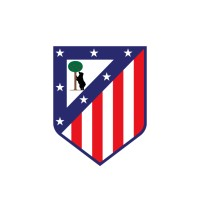The Battle Against Racism in Spanish Football: A Call to Action
October 20, 2024, 10:02 pm

Location: Spain, Community of Madrid, Madrid
Employees: 501-1000
Founded date: 1902
Total raised: $296.74M
Racism in football is a dark cloud that looms over the beautiful game. In Spain, this issue has become a battleground. Players like Nico Williams are stepping into the arena, determined to fight back. Their voices echo with urgency. They are not just athletes; they are warriors for change.
Nico Williams, a forward for Athletic Bilbao, has made it his life’s mission to combat racism. His resolve is born from personal experience. He faced racial abuse during a match against Atletico Madrid. The pain of those words cut deep. It wasn’t just a moment; it was a reminder of a larger problem. The Spanish Football Federation (RFEF) responded by partially closing Atletico's south stand for two matches. But is that enough?
Racism is a virus. It spreads quickly and infects minds. It thrives in silence. Williams refuses to stay silent. He speaks for those who cannot. He carries the weight of his family’s journey. They faced struggles and discrimination. Now, he aims to pave a smoother path for immigrants and marginalized communities. His fight is not just for himself; it’s for everyone who has been targeted.
In the stands, fans often become part of the problem. They throw insults like projectiles. They forget that players are human. They are not just entertainers; they are people with feelings. The RFEF’s actions are a step, but they are merely a band-aid on a festering wound. The real challenge lies in changing hearts and minds.
Atletico Madrid’s manager, Diego Simeone, acknowledges the atmosphere at the Metropolitano Stadium. Despite the partial closure, he believes the remaining fans will create a vibrant environment. But can passion drown out hate? The answer is complex. Fans must understand their role. They are not just spectators; they are part of the fabric of the game. Their voices can uplift or destroy.
The problem of racism in football is not confined to Spain. It’s a global issue. Players across leagues face similar challenges. The spotlight shines brightly on them, but it often reveals shadows. The world watches as they navigate this treacherous terrain. They must balance their careers with their convictions. It’s a tightrope walk.
Trent Alexander-Arnold, Liverpool’s vice-captain, is another player in the spotlight. Rumors swirl around his future. Speculation can be a distraction. Yet, he remains focused. His commitment to the game is unwavering. He understands that the noise around him is just that—noise. He must keep his eyes on the pitch.
Football clubs have a responsibility. They must create safe spaces for players. They need to foster an environment where everyone feels valued. This is not just about compliance; it’s about culture. Clubs should lead by example. They must take a stand against racism, not just in words but in actions.
Education is key. Young fans need to learn respect. They must understand the impact of their words. Clubs can implement programs that teach empathy and inclusivity. It’s about planting seeds of change. These seeds can grow into a forest of understanding.
The media also plays a crucial role. They can amplify voices like Williams and Alexander-Arnold. They can shine a light on the issues that matter. By doing so, they create a ripple effect. Awareness leads to action. Action leads to change.
The fight against racism in football is a marathon, not a sprint. It requires persistence and dedication. Players, clubs, and fans must unite. They must stand together against hate. The beautiful game deserves better. It deserves a future free from discrimination.
In conclusion, the battle against racism in Spanish football is emblematic of a larger struggle. It’s a fight for dignity, respect, and humanity. Nico Williams and others are leading the charge. They are not just players; they are champions of change. The world must listen. The time for action is now. Football can be a powerful force for good. It can bridge divides and heal wounds. But only if everyone plays their part. The beautiful game must be beautiful for all.
Nico Williams, a forward for Athletic Bilbao, has made it his life’s mission to combat racism. His resolve is born from personal experience. He faced racial abuse during a match against Atletico Madrid. The pain of those words cut deep. It wasn’t just a moment; it was a reminder of a larger problem. The Spanish Football Federation (RFEF) responded by partially closing Atletico's south stand for two matches. But is that enough?
Racism is a virus. It spreads quickly and infects minds. It thrives in silence. Williams refuses to stay silent. He speaks for those who cannot. He carries the weight of his family’s journey. They faced struggles and discrimination. Now, he aims to pave a smoother path for immigrants and marginalized communities. His fight is not just for himself; it’s for everyone who has been targeted.
In the stands, fans often become part of the problem. They throw insults like projectiles. They forget that players are human. They are not just entertainers; they are people with feelings. The RFEF’s actions are a step, but they are merely a band-aid on a festering wound. The real challenge lies in changing hearts and minds.
Atletico Madrid’s manager, Diego Simeone, acknowledges the atmosphere at the Metropolitano Stadium. Despite the partial closure, he believes the remaining fans will create a vibrant environment. But can passion drown out hate? The answer is complex. Fans must understand their role. They are not just spectators; they are part of the fabric of the game. Their voices can uplift or destroy.
The problem of racism in football is not confined to Spain. It’s a global issue. Players across leagues face similar challenges. The spotlight shines brightly on them, but it often reveals shadows. The world watches as they navigate this treacherous terrain. They must balance their careers with their convictions. It’s a tightrope walk.
Trent Alexander-Arnold, Liverpool’s vice-captain, is another player in the spotlight. Rumors swirl around his future. Speculation can be a distraction. Yet, he remains focused. His commitment to the game is unwavering. He understands that the noise around him is just that—noise. He must keep his eyes on the pitch.
Football clubs have a responsibility. They must create safe spaces for players. They need to foster an environment where everyone feels valued. This is not just about compliance; it’s about culture. Clubs should lead by example. They must take a stand against racism, not just in words but in actions.
Education is key. Young fans need to learn respect. They must understand the impact of their words. Clubs can implement programs that teach empathy and inclusivity. It’s about planting seeds of change. These seeds can grow into a forest of understanding.
The media also plays a crucial role. They can amplify voices like Williams and Alexander-Arnold. They can shine a light on the issues that matter. By doing so, they create a ripple effect. Awareness leads to action. Action leads to change.
The fight against racism in football is a marathon, not a sprint. It requires persistence and dedication. Players, clubs, and fans must unite. They must stand together against hate. The beautiful game deserves better. It deserves a future free from discrimination.
In conclusion, the battle against racism in Spanish football is emblematic of a larger struggle. It’s a fight for dignity, respect, and humanity. Nico Williams and others are leading the charge. They are not just players; they are champions of change. The world must listen. The time for action is now. Football can be a powerful force for good. It can bridge divides and heal wounds. But only if everyone plays their part. The beautiful game must be beautiful for all.
